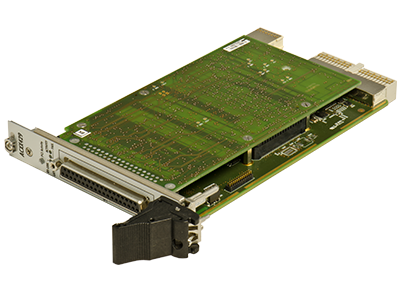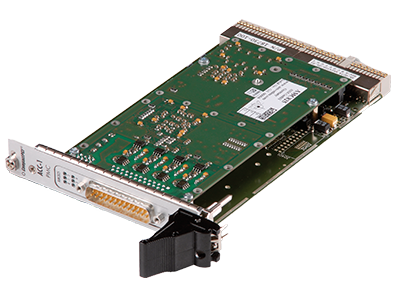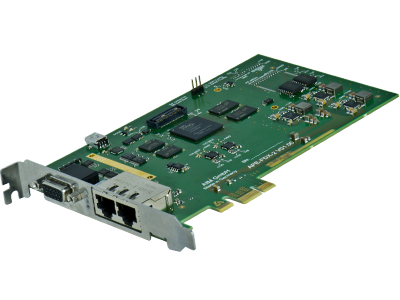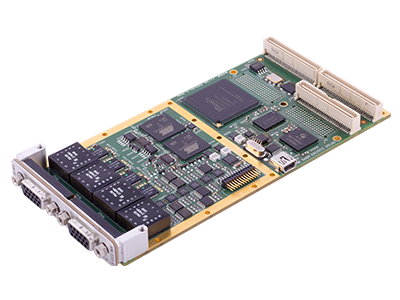Avionics
Avionics, Boards and Systems
Unitronix have over 70 years collective experience in the supply and support of COTS boards and systems for aircraft.
AIM GmbH: Avionics Databus Solutions, Test, Simulation Modules & Embedded Interfaces, Databus Test & Analysis Software, Integrated System Solutions, Training and Support.
We supply AIM Avionics Interface Modules, Data bus analyser software, customised systems, aircraft ground equipment and Bus extension Systems.
MIL-STD1553, ARINC429, AFDX (ARINC664P7), ARINC825, Fibre Channel ARINC818.
These are highly dependable boards and system solutions used in aircraft programmes in Australia for over 15 years. Let us know what you are looking for.

MIL-STD-1553 test, simulation, monitoring and analysis modules use field proven Common Core hardware design giving you the best performance, best feature set and highest functional integration on the market. The use of SoC (System on Chip) based core designs with multiple processors for real time bus protocol and application support, massive memory and IRIG-B time code encoder/decoder functions are standard. The latest versions also support avionics discrete I/O.
AIM’s comprehensive line up of MIL-STD-1553 products are implemented as dedicated cards in various form factors or mezzanine cards (PMC/XMC) for embedded applications with conduction cooling support and rear I/O. 1553 PMC/XMC cards installed on our family of generic carriers provide highly flexible, modular and cost effective solutions. AIM can deliver versions with extended temperature range and conformal coating.
Single or multiple stream, dual redundant configurations offer concurrent Bus Controller (BC), Multiple Remote Terminals (MRT) 31, Chronological/Mailbox Bus Monitor operation with full protocol error injection/detection, multi-level triggering, advanced capture/filtering and real time bus recording, time stamping and physical bus replay to ensure your bus integrity. Single Function variants support cost effective solutions.
Each module is delivered with a Board Support Package (BSP) containing the onboard driver software, a full Application Programming Interface (API) and detailed getting started and programming guides. Powerful PBA.pro databus test and analysis software is optionally available for all these MIL-STD-1553 cards.

ARINC429
ARINC 429 test, simulation, monitoring and analysis modules use field proven Common Core hardware design giving you the best performance, best feature set and highest functional integration on the market. The use of SoC (System on Chip) based core designs with multiple processors for real time bus protocol and application support, massive memory and IRIG-B time code encoder/decoder functions are standard. The latest versions also support avionics discrete I/O.
AIM’s comprehensive line up of ARINC 429 products are implemented as dedicated cards in various form factors or mezzanine cards (PMC/XMC) for embedded applications with conduction cooling support and rear I/O. PMC/XMC cards installed on our family of generic carriers provide highly flexible, modular and cost effective solutions. AIM can deliver versions with extended temperature range and conformal coating.
Modules with 4 to 64 channels (dependent on card form factor) provide software programmable Tx/Rx channels, high (100kbit/s) / low (12.5kbit/s) bit rates plus multiple powerful transmitter features and comprehensive receiver functions. Full protocol error injection/detection, multi-level triggering, advanced capture/filtering for SDI, labels and data and real time bus recording, time stamping and physical bus replay to ensure your bus integrity.
Each module is delivered with a Board Support Package (BSP) containing the onboard driver software, a full Application Programming Interface (API) and detailed getting started and programming guides. Powerful PBA.pro databus test and analysis software is optionally available for all ARINC 429 bus interfaces.

ARINC825
ARINC825 cards can work either with full functionality as an active CAN node for testing and simulating or in listening only mode for monitoring and recording purposes of Avionic CAN bus (ARINC825) applications on up to 4 electrically isolated CAN bus nodes concurrently. All nodes are in conformance with the ISO11898-1/-2 standard. They are accessible by software separately and can be used as 4 independent CAN bus nodes. An onboard IRIG-B time decoder allows users to accurately synchronise single or multiple modules to a common time source. All supported signals are available through front I/O and rear I/O interface. ARINC825 cards consist of FPGA based CAN interface controllers as well as a FPGA based 32-bit microcontroller core and a separate processor for IRIG-B synchronisation with high resolution time stamping. All nodes are operating concurrently at CAN bus high speed bit rate of up to 1Mbit/s with the intelligence to process scheduling of CAN frames in real time onboard to significantly off-load the host processor.
For embedded applications the AMC825-4 PMC module is available in a conduction cooled version. Using AIM’s family of PCI, CPCI (3U and 6U) and VMEbus carrier cards for PMC our clients have off the shelf solutions in a broad range of card formats.
ARINC825 (CAN bus) modules are delivered with an Application Programming Interface (API) and Driver Software compatible with Windows, Linux and VxWorks.
An ARINC825 Resource Component is available for AIM’s PBA.pro™ databus test and analysis tool including Tx and Rx simulation capabilities, a Chronological Bus Monitor and support for decoding of payload data within CAN messages. This allows to implement a powerful ARINC825 (CAN bus) analyser or a complete test system in conjunction with other AIM avionics databus interfaces and PBA.pro™ supported 3rd party hardware.

AFDX®/ARINC664P7
AFDX®/ARINC664P7 test, simulation, monitoring and analysis modules use our field proven Common Core hardware design giving you the best performance, best feature set and highest functional integration on the market. The use of SoC (System on Chip) based core designs with multiple processors for real time bus protocol and application support, massive memory and IRIG-B time code encoder/decoder functions are standard. Versions are available to support the Boeing specific ARINC664P7 extensions.
AIM’s comprehensive line up of AFDX/ARINC664P7 interfaces is implemented as dedicated cards or mezzanine cards (PMC/XMC) for embedded applications. PMC/XMC cards installed on our family of generic carriers provide highly flexible and modular solutions. AIM delivers versions of these modules with extended temperature range and conformal coating. For PMC/XMC embedded applications we offer conduction cooled versions with rear I/O.
Modules with 2 duplex AFDX/ARINC664P7 ports provide traffic generation in generic transmission, physical replay and end system simulation modes with full physical/logical error injection and programmable payload generation. Receiver functions include chronological monitoring and recording and UDP Port/VL oriented modes. Multi-level triggering, advanced capture/filtering, real time bus recording, time stamping and physical bus replay to ensure your network integrity.
Each module is supplied with a Board Software Package (BSP) containing the onboard driver software, a full Application Programming Interface (API) and detailed getting started and programming guides. Powerful PBA.pro databus test and analysis software is optionally available for all AFDX/ARINC664P7 modules.

FIBRE CHANNEL
Fibre Channel test, simulation and analysis modules use our field proven Common Core hardware design giving you the best performance, best feature set and highest functional integration on the market. The use of SoC (System on Chip) based core designs with one dual core RISC processor per port, massive and scalable DDR3 memory and IRIG-B time encoder/decoder functions are standard.
The new ultra high performance intelligent 4-lane PCIe 2.0 interface modules offer 2 ports with full function test, simulation, monitoring and analyser functions for Fibre Channel networks. The dual core processor provides onboard processing and data transfer capabilities for the most demanding Fibre Channel applications including upper layer protocol support done on board level.
Large and high data throughput DDR3 RAM is accessible for the onboard processor as is a high performance FPGA implementing the customised Fibre Channel interfaces enabling the board to analyse incoming and modify outgoing data in real time. Each module provides 2 Fibre Channel compliant full duplex ports, implementing the full link level services. SFP cages make it suitable for different media types as optical or electrical network technologies.
Ports operate either in Traffic Simulator or Analyser/Monitor mode with support for port related Frame Statistics. Sophisticated packet capturing mechanism and monitoring features are complimented with powerful triggering and filtering capabilities.
The modules provide Fibre Channel compliant Interface Logic with analyser function which supports the Link service Classes 1, 2 and 3. All Link Level Parameters for the Fibre Channel communication are user-definable.
Each port provides 4GByte of low power DDR3 RAM, summarising to 8GB for the complete module. These huge memory resources support large receive buffers and allow complex transmit scenarios onboard.
Each module is delivered with a Board Support Package (BSP) containing the onboard driver software, a full Application Programming Interface (API) and detailed getting started and programming guides. Powerful PBA.pro databus test and analysis software is optionally available for all our Fibre Channel modules.




